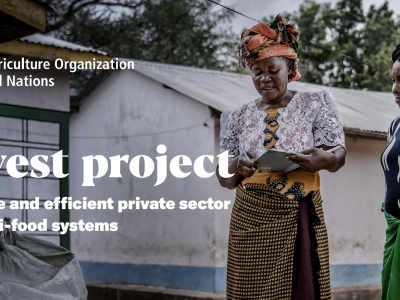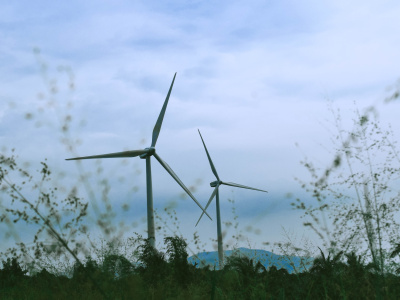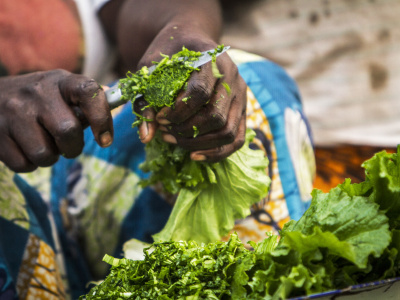
Sustainable Agrifood Systems Strategies – SASS project (2018-2021)
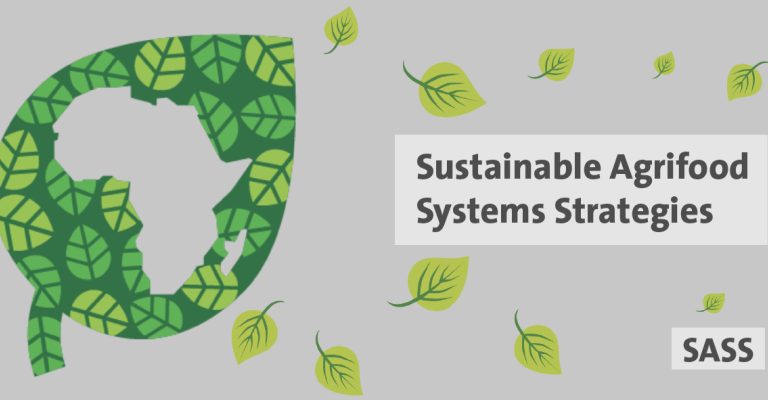
Authors
ECDPM is leading a multidisciplinary research consortium for the Sustainable Agrifood Systems Strategies (SASS) project, funded by the Italian government. Together with
four Italian universities and local partners, we are mapping and analysing
the local food systems in three areas of Kenya and Tanzania.
About the project
The world population is expected to grow from 7 to 9 billion by 2050. With consumption already at 1.5 times the planet’s replenishing capacity, our current food systems are unsustainable. In addition, climate change will further increase risks in global food production. The challenge ahead of us is to develop sustainable ways to feed a growing population with an increasing demand for food. This is easier said than done, especially in sub-Saharan Africa, where adequately but sustainably feeding a growing population is extremely pressing.
The Sustainable Agrifood Systems Strategies (SASS) project aims to contribute to the ongoing debates and initiatives on increasing the sustainability of food systems, by examining the role of neglected and underutilised species or indigenous vegetables.
A food system gathers all the elements and activities that relate to the production, processing, distribution, preparation and consumption of food and the outputs of these activities, including socio-economic and environmental outcomes. A sustainable food system is a food system that meets the needs of society (people), economy (profit) and environment (planet) over time:
Environmental sustainability
- Enhancement of local agro-biodiversity
- Improved management of natural resources
- Reduced negative environmental externalities
- Less use of chemical inputs
- Reduced waste
- Enhanced resilience to climate shocks
- Economic sustainability
Diversified enterprise opportunities and sources of income for small-holder farmers
- Better access to markets for farmers
- Better incentives for local actors involved in more sustainable value chains
- Social sustainability
Increased availability, access and consumption of local, diverse and nutritious food
- Inclusiveness in global and local food value chains
- Empowerment of women, consumers and small-holder farmers
ECDPM, together with four Italian universities, is implementing a two-year research and dialogue project focusing on what makes food systems more sustainable. Bringing together researchers from different disciplines, SASS will map and analyse the local food systems in the Arusha and SAGCOT areas in Tanzania, and the Lake Naivasha area in Kenya. Together with local stakeholders, strategies on how to change current practices, policies and partnerships will be explored so that these local food systems will become more sustainable.
Our goal is to facilitate multi-disciplinary research that aims to create knowledge, policy dialogue and partnerships contributing to more sustainable food systems, with a focus on feeding policy processes in Africa, Europe and at the global level. Research in different disciplines is conducted in synergy while maintaining a common conceptual framework that will allow giving comprehensive recommendations on sustainable food systems.
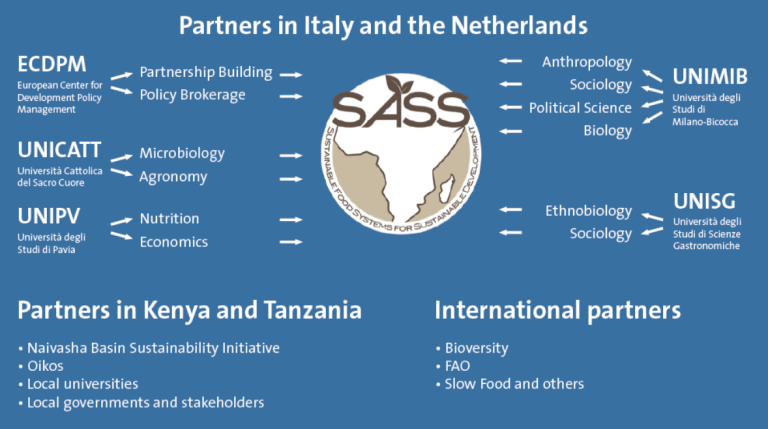
The SASS research will focus on identifying the opportunities and challenges to integrate high-value traditional crops also called ‘Neglected and Underutilised Species’ (NUS) with staple crops, which are generally more supported, to increase the sustainability of the food system. The project will address the social, environmental, economic and institutional/political sustainability aspects in each region, with a special focus on different policy outcomes and specific recommendations in the three different locations.
Key research steps and expected outcomes
- Food systems analysis: mapping exercise of the local food systems in the selected areas
- Sustainability scoping exercise: understanding the dynamics and issues of these local food systems and identifying pathways for change
- Viability exercise: Understanding the viability of the suggested pathways formulates in step 2
- Policy and investment identification exercise: action-oriented guidelines/steps to scale up sustainable practices, required policies and investments to improve the sustainability of food systems
Get in touch
For more information on this project, please contact the coordinators Francesco Rampa at fr@ecdpm.org, or Massimo Labra at massimo.labra@unimib.it.

All work
Sustainable food systems through diversification and indigenous vegetables: An analysis of the Iringa and Dodoma areas in Tanzania
Cecilia D’Alessandro and Paulina Bizzotto Molina, ECDPM paper, September 2021
The food systems approach in practice: Our guide for sustainable transformation
Koen Dekeyser, Francesco Rampa, Cecilia D’Alessandro and Paulina Bizzotto Molina, ECDPM paper, July 2020
Sustainable food systems through diversification and indigenous vegetables: An analysis of the Arusha area
Paulina Bizzotto Molina, Cecilia D’Alessandro, Koen Dekeyser and Marta Marson, ECDPM paper, March 2020
Portraying the realities of indigenous vegetables in Tanzania
A series of short video interviews on the realities surrounding indigenous vegetables in Arusha
ECDPM and Giangiacomo Feltrinelli Foundation, May 2020
Connecting the dots for sustainable food systems in Kenya
Koen Dekeyser and Francesco Rampa, ECDPM blog, October 2019
Sustainable food systems through diversification and indigenous vegetables: An analysis of the southern Nakuru County
Francesco Rampa and Hanne Knaepen, ECDPM paper, July 2019
Towards a #ZeroHunger future with Africa’s forgotten treasures
Philipp Sanderhoff, ECDPM video documentary, October 2018
Making markets work for indigenous vegetables in the Lake Naivasha Basin, Kenya
Hanne Knaepen, ECDPM paper, September 2018
Multidisciplinary approach and dialogue to foster sustainable agrifood systems
Francesco Rampa, Blog for the Barilla Center for food and nutrition, June 2018
Interview with Margaret Komen about indigenous vegetables
Francesco Rampa, ECDPM video, June 2018
GREAT Insights Magazine: Sustainable food systems
Volume 6, Issue 4, September 2017
External publications
Fermentation as a tool for increasing food security and nutritional quality of indigenous African leafy vegetables: the case of Cucurbita sp. Chiara Miscia, Eren Taskina, Margherita Dall’Astab, Maria Chiara Fontanellaa, Francesca Bandinia, Samuel Imathiuc, Daniel Silac, Terenzio Bertuzzib, Pier Sandro Cocconcellia, Edoardo Puglisia. Food Microbiology Volume 99, October 2021, Article 103820
SASS Sustainable food systems and indigenous vegetables – Final report
Fondazione Giangiacomo Feltrinelli, 2021
The ark of taste in Tanzania: Food, stories and knowledge of gastronomic heritage
University of Gastronomic Sciences of Pollenzo and The Slow Food Foundation for Biodiversity, 2021
Impact of land use intensification and local features on plants and pollinators in Sub-saharan small holder farms. Nicola Tommasi, Paolo Biella, Lorenzo Guzzetti, Julius Vincent Lasway, Henry Kenneth Njovu, Andrea Tapparo, Giulia Agostinetto, Marcell Karl Peters, Ingolf Steffan-Dewenter, Massimo Labra, Andrea Galimberti. 2021. UNIMIB Articolo su rivista. Agriculture, Ecosystems and Environment
Indigenous vegetables: a sustainable approach to improve dietary diversity in Tanzanian women of childbearing age. Maria Vittoria Conti, Rachele De Giuseppe, Maria Cristina Monti, Angela G. Mkindi, Naelijwa H. Mshanga, Silvia Ceppi, John Msuya & Hellas Cena. 2021. LDNC- UNIPV research article pubblicato su rivista indicizzata, European Journal of Clinical Nutrition
Linking producers’ and consumers’ perceptions in the valorisation of nontimber forest products: An analysis of Ogiek forest honey
Dauro Mattia Zocchi, Maria Piochi, Giorgia Cabrino, Michele F. Fontefrancesco, LuisaTorri for ‘Food Research International’, November 2020
Sustainability perspectives of Vigna unguiculata L. Walp. Cultivation under no tillage and water stress conditions. Guzzetti L., Fiorini A., Panzeri D., Tommasi N., Taskin E., Misci C., Puglisi E., Tabaglio V., Galimberti A., Labra M. 2020. UNIMIB Articolo su rivista. Plants 2020, 9(1), 48; P 1-15
Effectiveness of Vigna unguiculata seed extract in preventing colorectal cancer. Panzeri D., Guzzetti L., Sacco G., Tedeschi G., Nonnis S., Airoldi C., Labra M., Fusi P., Forcella M., Regonesi ME. 2020. UNIMIB Articolo su rivista. Food & Function 5853-5865
Protective effects of Vigna unguiculata extract against aging and neurodegeneration. Tripodi F, Lombardi L, Guzzetti L, Panzeri D, Milanesi R, Leri M, Bucciantini M, Angeloni C, Beghelli D, Hrelia S, Onorato G, Di Schiavi E, Falletta E, Nonnis S, Tedeschi G, Labra M, Coccetti P. 2020. UNIMIB Articolo su rivista. Aging 19785-10808
Small farmers for a food system transition: Evidence from Kenya and Tanzania
Nunzia Borrelli and Patrick Ndakidemi, 2020
Quanto la multiculturalità appiattisce l’offerta. Dinamiche culturali e sviluppo merceologico alimentare nei mercati della contea di Nakuru, Kenya
Michele F. Fontefrancesco, Dauro Mattia Zocchi and Paolo Corvo for ‘Dada Rivista di Antropologia post-globale’, 2020
The potential role of Neglected and Underutilized Plant Species (NUS) in improving women’s empowerment and nutrition in Sub-Saharan area. Nutrition Reviews 2019. LDNC- UNIPV Narrative Review pubblicata su rivista indiciZzata. Maria Vittoria Conti, Ausilia Campanaro, Paola Coccetti, Rachele De Giuseppe, Andrea Galimberti, Massimo Labra, Hellas Cena
Seasonality and nutrition-sensitive agriculture in Kenya: Evidence from mixed-methods research in rural Lake Naivasha basin
Maria Sassi, November 2019
Food Commodity Market: History and Impact of Food Trading Toward SDG2
Michele F. Fontefrancesco, July 2019*
Food Web and Food Network: Role of Food System Ecological Interconnectedness in Achieving the Zero Hunger Goal
Michele F. Fontefrancesco and Henry Sidsaph, July 2019*
Slow Food: History and Activity of a Global Food Movement Toward SDG2
Michele F. Fontefrancesco and Paolo Corvo, July 2019*
* These articles have been published in ‘Zero Hunger. Encyclopedia of the
UN Sustainable Development Goals’
Narrazioni e prodotti nella patrimonializzazione della gastronomia locale: una nota metodologica
Michele F. Fontefrancesco and Dauro Mattia Zocchi for ‘Narrare i Gruppi’, 2019
Food insecurity in the rural lake Naivasha basin: Evidence and policy implications
Maria Sassi and Emanuele Zucchini, Department of Economics and Management at the University of Pavia, 2018
DNA barcoding to promote social awareness and identity of neglected, underutilized plant species having valuable nutritional properties
Ausilia Campanaro et al., ZooPlantLab, Department of Biotechnology and Biosciences at the University of Milano-Bicocca, 2018
Family farming and market access in Nakuru County, Kenya
Michele F. Fontefrancesco, 2018
Sotto il cielo della Rift Valley: Sviluppo rurale e cibo tradizionale nella contea di Nakuru, Kenya
Paolo Corvo and Michele F. Fontefrancesco, Vicolo del Pavone, 2018
The ark of taste in Kenya: Food, knowledge, and stories of gastronomic heritage
University of Gastronomic Sciences of Pollenzo and The Slow Food Foundation for Biodiversity, 2018
Meanings and taboos in traditional gastronomy of Maasai communities in Kajiado County, Kenya
Michele F. Fontefrancesco and L.N Lekanayia, 2018





